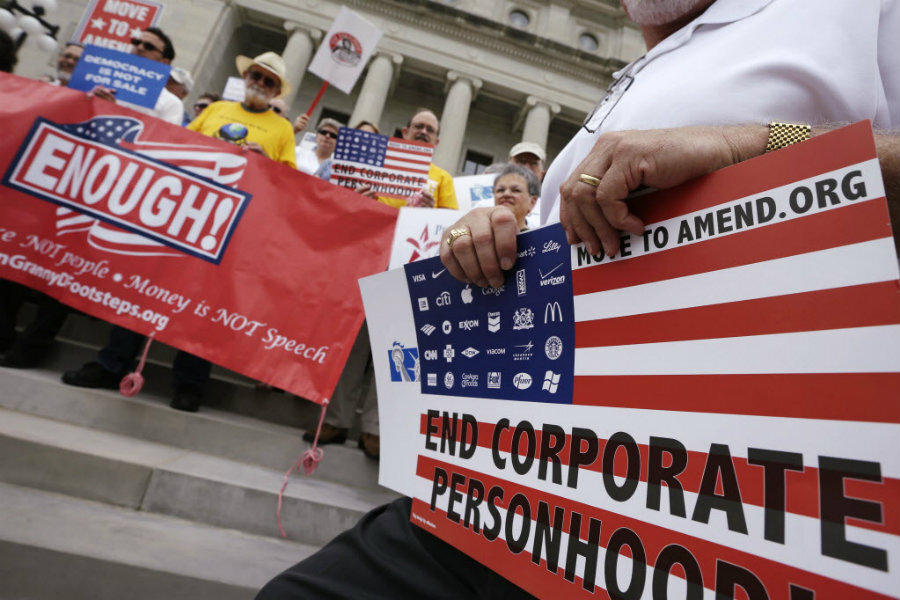Poll: Americans dissatisfied with campaign finance system
These days, it’s hard to get a Democrat and a Republican to agree on almost any issue. But if there’s place they might find common ground, it’s campaign finance.
Majority of Americans are deeply dissatisfied with how political campaigns are financed today, but few expect to see real reforms in the near future, a New York Times/CBS News poll has found.
The findings, released Tuesday, reveal a nation increasingly alienated from its representatives, their elite supporters, and the electoral process – a shift that occurred as a series of Supreme Court decisions, most notably the 2010 case involving Citizens United, expanded the role and influence of wealthy donors in political campaigns, according to the Times.
At the same time, the poll shows that the public, regardless of party affiliation, is united in its support for overhauling the current campaign financing system: About 85 percent of participants said the system either needed “fundamental changes” or had to be completely rebuilt, according to the survey.
“I think too much money is spent on campaigns, and it ends up being lopsided,” Sonja Rhodes, a retired secretary and a Republican from Washington state, told the Times. “They should pass a bill and instead of billions of dollars, spending should be limited to $10 million or so.”
Nearly 80 percent also favored limiting the amount of money an individual can donate to a campaign, and 84 percent polled said that money has too much influence in political campaigns today.
None of this is likely to come as a surprise. There’s a reason that, as the Wall Street Journal’s Bryan Tau put it, “[v]owing to fix the country’s campaign finance system is a perennial campaign trail promise, especially for Democrats.”
There’s one other thing that majority of Americans agree on, according to the Times/CBS poll: Pessimism regarding reform.
It’s a view that comes hand-in-hand with the perceptions that elected officials lack the willingness to “fight the system they inhabit,” and that, next to issues like the economy, jobs, and the deficit, campaign finance is not a critical concern, the Times reported.
For instance, Hillary Clinton, shortly after announcing her candidacy, pledged to make campaign finance reform a central part of her platform, according to the Washington Post.
Two weeks later, the Times reported that Ms. Clinton would be courting donors for a “super PAC,” “the first time a Democratic presidential candidate has fully embraced these independent groups that can accept unlimited checks from big donors and are already playing a major role in the 2016 race.”
In a blog for the Post, political reporter Chris Cillizza wrote that Clinton would likely defend her actions by giving a version of what he called “the unilateral disarmament case”:
The only way to bring about real campaign finance reform is for me [Clinton] to get elected president. The only way for me to get elected president is to ensure a close-to-fair financial fight. The only way to ensure a close-to-fair financial fight is to help the super PAC raise money.
Still, the beginnings of a blueprint to reform may already exist, Yale Law School professors Bruce Ackerman and Ian Ayres wrote for The Atlantic.
Earlier this month, the US Supreme Court ruled in a Florida case involving judicial elections, upholding the state’s decision to ban candidates from personally soliciting funds. Chief Justice John Roberts, in his opinion, noted: “[T]he personal involvement of the candidate in the solicitation creates the public appearance that the candidate will remember who says yes, and who says no.”
Political leaders embracing a similar ban could represent the start of real change, Mr. Ackerman and Mr. Ayres wrote.
“Far more useful are concrete steps – like a ban on personal solicitations – that might … demonstrate to skeptical constituents that that they are serious about their real job: crafting serious solutions to the critical problems of the 21st century,” they wrote.








